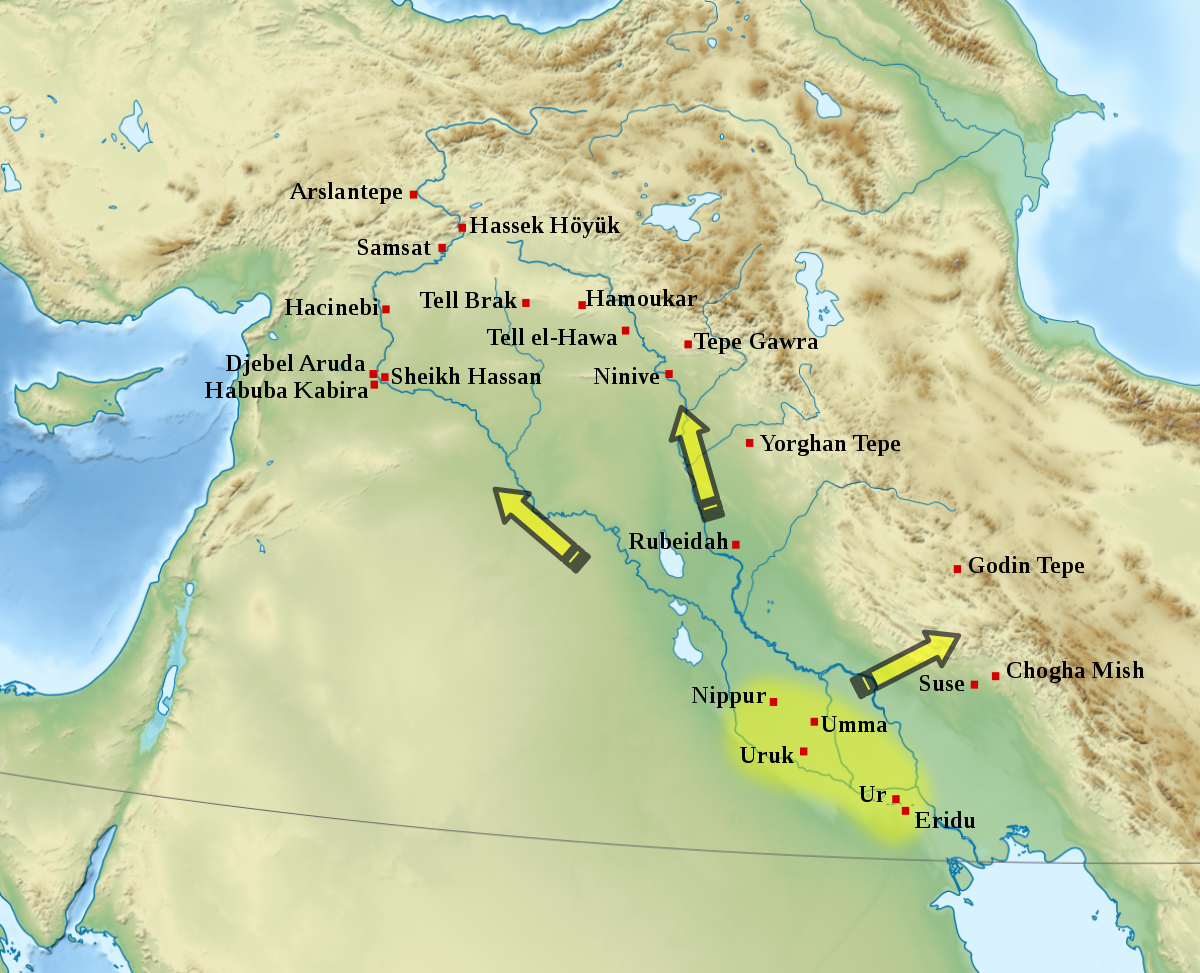Continued from post #13.
Over 2,000 years before George Smith’s discovery of the deluge tablets in Iraq, there existed an account of the Chaldean [pre-Babylonian] flood myth. Berosus, an ancient Chaldean historian living in the time of Alexander the Great in the 4th century B.C.E, relayed to the Greeks the antiquity of his peoples deluge myth in the following words: “After the death of Ardates, his son Xisuthrus reigned eighteen sari. In his time happened a great deluge; the history of which is thus described.
The deity Cronos appeared to him in a vision, and warned him that upon the fifteenth day of the month Daesius there would be a flood, by which mankind be destroyed. He therefore enjoined him to write a history of the beginning, procedure, and conclusion of all things, and to bury it in the city of the sun at Sippara; and to build a vessel, and take with him into it his friends and relations; and to convey on board everything necessary to sustain life, together with all the different animals, [In the area of his known world] both birds and quadrupeds, and trust himself fearlessly to the deep.
Having asked the Deity whither he was to sail, he was answered, “To the Gods;” upon which he offered up a prayer for the good of mankind. He then obeyed the divine admonition and built a vessel five stadia in length, and two in breadth. Into this he put everything which he had prepared, and last of all conveyed into it his wife, his children and his friends. After the flood had been upon the earth, and was in time abated, Xisuthrus sent out birds from the vessel; which finding no food, nor any place whereupon they might rest their feet, returned to him again. After an interval of some days, he sent them forth a second time; and they now returned with their feet tinged with mud. He made a trial a third time with these birds; but they returned to him no more: from whence he judged that the surface of the earth had appeared above the waters.
He therefore made an opening in the vessel, and upon looking out found that it was stranded upon the side of some mountains; upon which he immediately quitted it with his wife, his children, and the pilot. Xisuhrus then paid his adoration to the earth: and having constructed an altar, offered sacrifices to the Gods.”
It should be noted that the account of the deluge relayed in the tablets discovered by George Smith differ only very slightly from Berosus’ account, which differs only slightly from the story handed down by the Chaldean, Abraham, whose father ‘Terah’ was High Priest in the temple of the Chaldean city of Ur.
The flood of Noah didn’t come as a surprise. It had been preached on for four generations. Something strange happened when Enoch was 65, from which time “He walked with God.” Enoch was given a prophecy that as long as his firstborn son ‘Methuselah’ was alive, the judgement of the flood would be withheld, but as soon as he died, the flood would be sent forth.
Enoch named his firstborn to reflect this prophecy. The name Methuselah comes from two roots: muth, a root that means death, and from shalach, which means ‘To Bring’ or ‘To Send Forth.’ Thus, the name Methuselah signifies, ‘His Death Shall Bring.’ And, indeed, in the year that Methuselah died, the flood came.
Remembering that Abraham was the son of Terah the High priest of the temple in the Chaldean city of Ur, and he was, according to the erroneous Roman OT, 58 when Noah died, but who, according to the Septuagint, was born 822 years after the death of Noah, the question is now asked, could the Chaldean name ‘Arsates’ mean, ‘When he dies it will happen? And could the name ‘Xisuthrus’ have the same meaning as that of the name ‘Noah’, which is, “One who brings relief or comfort?”
The Chaldean month of Daesius, is the 2nd month, which corresponds with the biblical account that it was in the second month that the flood came. But there is a two-day discrepancy: the biblical account is the 17th day, [See Genesis 7: 11.] whereas the other is the 15th day.
These three flood accounts are so similar it becomes obvious that they originated from the one source. Another interesting similarity between the Chaldean deluge story and the one as handed down through the Hebrew, is that before the flood, people lived extraordinary long lives until the god/gods declared that man shall no longer live past a restricted age limit. This signifies that the floods of both cultures mark the same transition in the history of the world, that being, the birth of the modern world.
The more that I am forced to look at the flood accounts, the more I am convinced that some catastrophic event occurred over 4,000 years ago, which caused worldwide devastating floods and tsunamis, of which the more accurate account of the flood that devastated the civilized world of that day, can be found in the Hebrew culture that came down from the Chaldean Abraham, and his family, whose language and racial religion have remained intact for over 4,000 years.

